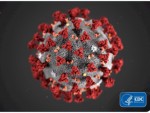 Sometimes the first sign of a serious coronavirus complication can be delirium and confusion.
Sometimes the first sign of a serious coronavirus complication can be delirium and confusion.
Some kind of neurological effect is quite common with Covid-19 (CCP-flu). As many as 30 – 60% of coronavirus cases may lose their sense of taste or smell. But now we should also look out for stroke type symptoms or confusion. This may be the first sign someone is in trouble with Covid-19.
Coronavirus can infect brain and nerve tissue, causing inflammation. And if it increases blood clotting then it could increase the risk of strokes as well.
NBC News
That was when she noticed her father, who had shown no previous signs of dementia, was largely unaware of what was happening around him.
There is growing evidence to suggest that COVID-19, the illness caused by the coronavirus, can affect not only the lungs, but the brain, too.
A recent study of 214 patients in Wuhan, China, where the pandemic started, found more than a third had neurologic manifestations of the disease, including loss of consciousness and stroke. Physicians in the U.S. have noted the same.
“We’re seeing a significant increase in the number of patients with large strokes,” Dr. Johanna Fifi, associate director of the cerebrovascular center at the Mount Sinai Health System in New York City, said.
Many are patients in their 30s and 40s. Over a recent two-week period, Fifi told NBC News she had five COVID-19 patients under age 49, all with strokes resulting from a blockage in one of the major blood vessels leading to the brain.
Not surprisingly the worst neurological complications are probably in ARDS severe cases:
Neurologic Features in Severe SARS-CoV-2 Infection
April 15, 2020, DOI: 10.1056/NEJMc2008597
We report the neurologic features in an observational series of 58 of 64 consecutive patients admitted to the hospital because of acute respiratory distress syndrome (ARDS) due to Covid-19.
In this consecutive series of patients, ARDS due to SARS-CoV-2 infection was associated with encephalopathy, prominent agitation and confusion, and corticospinal tract signs. Two of 13 patients who underwent brain MRI had single acute ischemic strokes. Data are lacking to determine which of these features were due to critical illness–related encephalopathy, cytokines, or the effect or withdrawal of medication, and which features were specific to SARS-CoV-2 infection.
Patients are not getting all their executive functioning back necessarily as they depart hospital either. ARDS patients go through a lot — being put into induced comas, paralyzed, and having just enough oxygen pumped in to keep them alive — so it’s no wonder a third of them are not operating at full speed on departure.
“Of the patients who had been discharged at the time of this writing, 15 of 45 (33%) had had a dysexecutive syndrome consisting of inattention, disorientation, or poorly organized movements in response to command.”
After brain damage, cognitive skills can keep improving for up to a year or two as inflammation subsides and the brain adapts. We hope this happens after Coronavirus ARDS events. But this is another one of the unknowns about a new virus. What damage is permanent?
Some neurological effects were found in the first round of SARS, even in young healthy people
About 5% of SARS patients back in 2004 experienced central nervous system symptoms. In one case a 39 year old doctor developed all the usual symptoms, was hospitalized, then developed vision problems and “progressively worse central nervous system symptoms, like restlessness and delirium. A computed tomography scan indicated brain damage. He died about a month after being hospitalized, and his brain tissue was examined and found to contain the SARS coronavirus.”
Most people get their sense of smell back, but some are still waiting:
Coronavirus patients are waiting weeks for their sense of smell to recover
Mike Wehner
As CNN reports, some coronavirus victims have been waiting for their sense of smell to return for weeks, and fears of permanent loss of smell are spreading.
Those fears may seem extreme, but they’re not unwarranted. As Professor Steven Munger of the University of Florida’s Center for Smell and Taste told CNN, sensory changes caused by an illness can hang around for a long time.
“What we’ve known for a long time is one of the major causes of smell loss are upper respiratory tract infections due to viruses — a common cold, influenza — a subset of people lose their sense of smell, most of them temporarily, but a small subset lose that smell permanently,” Munger explains.
Tough job for the coroner
Right now, in both New York and the UK, the all-cause mortality rates are higher than we’d expect due to Coronavirus. It could be that people who are getting heart attacks and strokes for other reasons are afraid to go to hospital out of fear of catching Coronavirus. But it also may be that Coronavirus could be causing strokes or heart failure itself. And unpacking how much is one or the other will often be impossible. If someone has a preexisting stroke risk and coronavirus pushes them over the edge, how much do we blame Coronavirus? It would take an indepth autopsy, and even then it may be impossible to tell.
Years from now someone will trace mortality rates through this and look for a long tail (or a reduction) in deaths following the pandemic in heart attacks and strokes. Only then might we get an idea of how many years of life were stolen by this virus.
It’s another reason to crush the curve until we learn more.